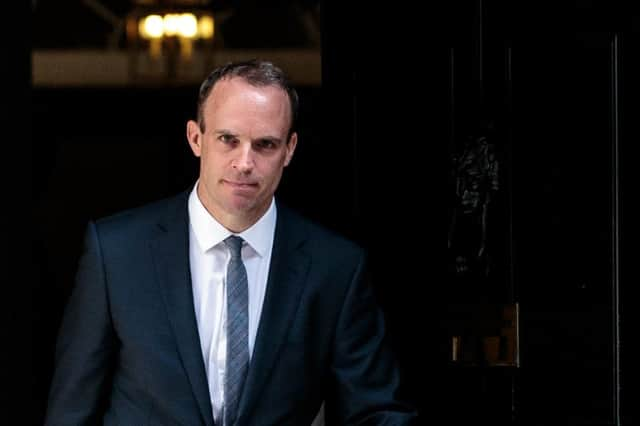New Minister Rabb is a man with a daunting list


The first item is ‘make a list’, which can immediately be crossed off. That means you have made a start to what lies ahead, and the rest should fall into place.
The new Brexit minister – or to be more accurate Minister for Exiting the European Union, Dominic Raab, must feel like a man with a daunting list. His aim is to keep Brussels negotiating through its normally sacrosanct August break, with a view to having a Brexit deal in place by October. That outcome is very much in the balance. By then we should know whether a negotiated deal will be possible or whether we really are heading for a hard Brexit. Part of hard Brexit preparations would be to accelerate the changes that are coming for agriculture as it moves away from the CAP structures and funding.
Advertisement
Advertisement
Raab seems to have more of a commitment to negotiate than his predecessor, David Davis demonstrated. The relationship between the UK minister and the EU’s chief negotiator, Michel Barnier, seems better, and there is a growing sense that Raab may well call his bluff. Like de Gaulle when the UK first sought to join the then EEC Barnier thundered ‘non’ to the suggestion that the UK could collect tariffs on behalf of the EU as part of a customs deal. However the former French farm minister, as the Commission’s chief negotiator, and its president, Jean-Claude Juncker, risk making a fundamental mistake of officials by getting out of step with their political masters.
EU heads of state are becoming increasingly alarmed about the prospects of a no deal Brexit. Germany knows this would damage its motor industry; Ireland, the Netherlands and others know the damage this would cause to their respective food industries. There is a realisation dawning across Europe that they should have negotiated, rather than risked losing the UK as an EU member, but that ship has sailed. The ultimate showdown may not be between the UK and Commission, but between it and the member states governments who do not want to risk the political and economic consequences of a hard Brexit.
Ultimately heads of state will have to decide whether they will allow their destiny to be driven by the purists of the European Commission and their dreams of a federal state, or by real world economics. This is an argument that goes to the core of the EU and it is ironic that it could be the departure of the UK that could bring to a head something that should have been on the EU agenda long before the UK made the decision to quit. That is whether member states want the EU to become a federal United States of Europe, or an administration operating on behalf of now 27 sovereign countries.
This is all heady stuff, but in agriculture the list of areas to be sorted out beyond trade and support is long indeed. Under pressure from pro-remain Conservatives the government has agreed to remain within the EU medicine legislation and controls. That is a sensible decision. The precedent that has created needs to be extended to other areas,
Advertisement
Advertisement
including the approval and registration of pesticides and animal medicines. In this process the European Food Standards Agency is widely recognised as an honest broker and there is no need to duplicate it.
In the event of a hard Brexit vets will be under pressure to check imports and certify exports. The government needs to confirm that for new customs checks sufficient vets will be available, not least because ending free movement of EU citizens could undermine access to European vets.
Rural development is also on the list. Rural communities need assurance now that a replacement will emerge so that there can be a smooth transition into new programmes after Brexit. This is an opportunity to do rural development better, and the government needs to prove this is a Brexit opportunity rather than a threat. A key issue to be resolved is how to promote food. There the list is headed by how deep the government is prepared to dig in its coffers to finance a programme that would allow the UK to compete with an EU-27 increasingly powerful on global agrifood markets.